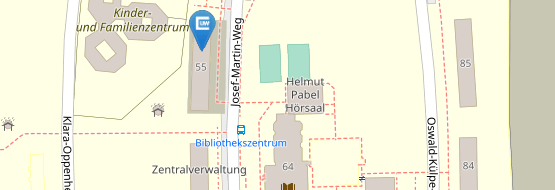Potential analysis/competence profile
The competence profile records the current status of competence acquisition. It highlights the knowledge, skills and abilities that you have acquired formally or informally. By systematically recording your own potential, you gain an overview of which professional skills you have already acquired and which skills you can continue to develop in order to further define your own profile.
Conducting the potential analysis
We have been carrying out the potential analysis in several formats and events for many years. This semester, you will receive instructions on analysing potential and the associated creation of your skills profile at the following events:
- Introductory meeting for the Climate Virtual Exchange: Mo, 06 Oct 2025, 13:00 - 15:00 c.t.
- Entscheidungsfindung und meine Persönlichkeit: Fri, 21 Nov 2025, 14:00 - 18:00 c.t. / Sa, 22 Nov 2025, 09:00 - 17:00 c.t.
- Potenzialanalyse - Eigene Stärken entdecken und fördern: Tue, 25 Nov 2025, 09:00 - 17:00 c.t.
- Potenzialanalyse - Gut vorbereitet auf das Mentorengespräch: Fri, 23 Jan 2026, 14:00 - 18:00 c.t.
- Vom Kompetenzprofil zur Initiativbewerbung: Thu, 29 Jan 2026, 16:00 - 18:00 c.t.
- Aus der Uni in den Job: Potenzialanalyse und Entscheidungsfindung: Fri, 13.03.2026, 13:00 - 18:00 c.t. / Sat, 14.03.2026, 10:00 - 17:00 s.t.
- Berufseinstieg für Studierende der Geisteswissenschaften - Profilbildung und Bewerbungstraining: Fri, 13/20/27 Mar 2026, 09:00 - 13:00 c.t.
In addition to our synchronous events, we also offer a video-based guide to potential analysis so that you can get to know the concepts of potential analysis at home, independently of the course programme. If you are interested, you can simply enrol in the WueCampus course room yourself.

